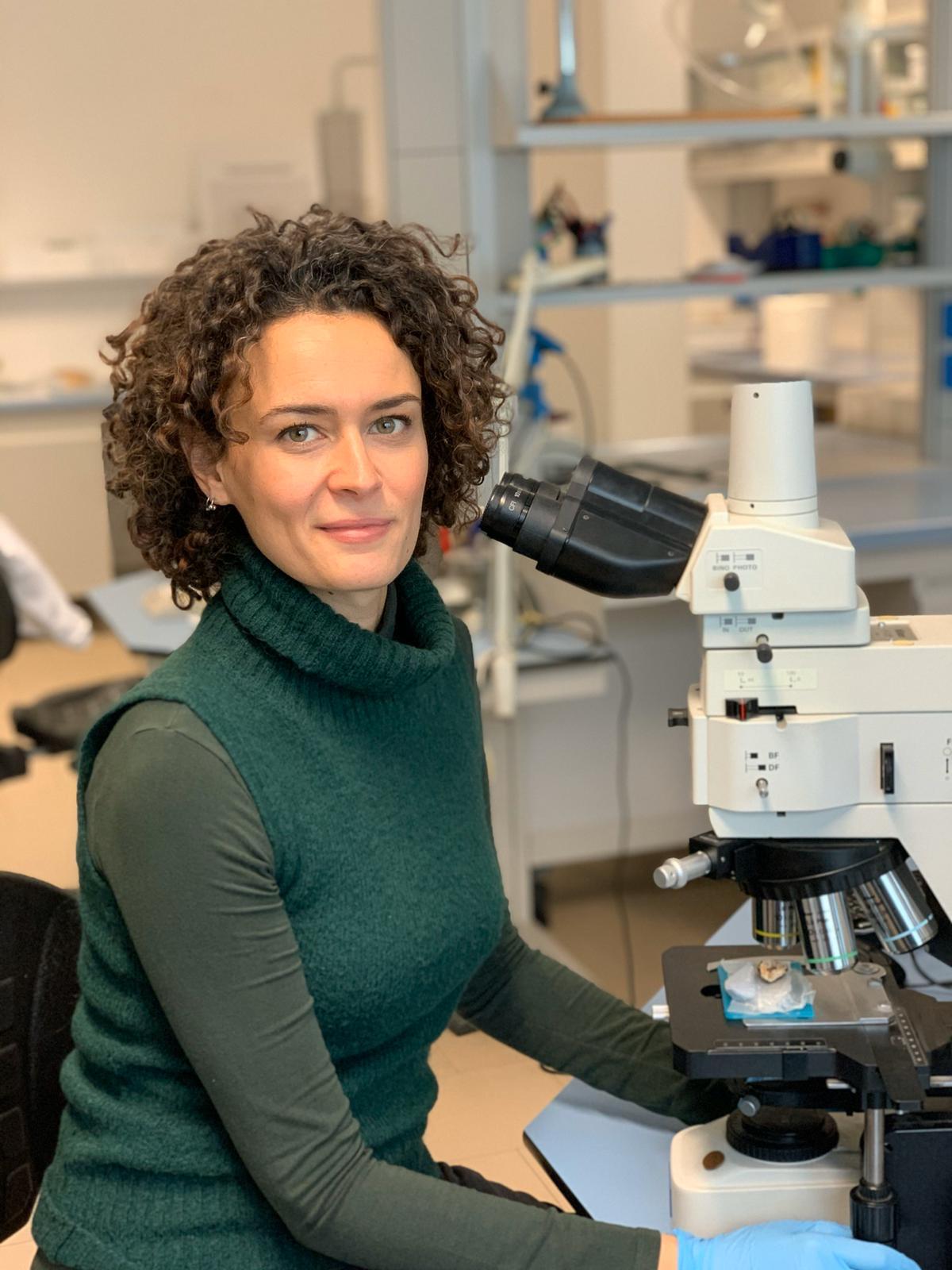Press Releases Archive
31.01.2020
Tübingen Early Prehistory and Quaternary Ecology Prize for Flavia Vendetti
Italian researcher shows how people recycled tools 400,000 years ago
The Tübingen Early Prehistory and Quaternary Ecology Prize this year goes to Dr. Flavia Venditti of Sapienza University in Rome. The Italian researcher receives the award for her doctoral thesis, The recycling phenomenon during the Lower Palaeolithic: the case study of Qesem Cave (Israel). In her thesis, she shows how ancient toolmakers produced small cutting blades from larger tools which had become unusable, and how the implements were put to diverse uses some 400,000 years ago.
Flavia Venditti studied archaeology at Sapienza University in Rome and then, in her Master’s degree program, specialized in the field of Cultural Heritage. She completed her doctorate at Sapienza with distinction. She is now working in Israel at the University of Tel Aviv in collaboration with Professor Ran Barkai and expanding on her doctoral topic with material from an even older site, Revadim.
Recycling is by no means an invention of the industrial age. On the contrary, both archaeological and historical records show that it was common practice in early societies and hunter-gatherer populations. In the ancient Paleolithic strata of the Qesem cave in Israel, targeted recycling can be consistently shown for the period 420,000 to 200,000 years before the present day. Stone tools that could no longer fulfill their original function were not thrown away, but served as raw material for the production of small, very sharp tools.
For a long time, archaeologists regarded these pieces, which were not particularly unusual in form, as occasional emergency solutions, used only when suitable raw material ran out. The work of Flavia Venditti now shows that at some sites, the fragments were a common and important part of the Paleolithic toolbox.
Different kinds of wear and tear indicate what the recycled products were used for. For the Qesem cave, Dr. Venditti found evidence for the processing of mainly meat, skins and bones when cutting up animals, but also plants such as tubers. Thanks to the particularly favorable conservation conditions of the cave, residues of the processed materials were also preserved. With the help of microscopic and chemical analyses conducted at the Laboratory of Technological and Functional Analyses of Prehistoric Artefacts led by Professor Cristina Lemorini (Sapienza University), remains of bones, animal tissue and fat could be detected. In experiments, the small sharp tools were particularly suitable for skinning prey and cutting up the cleaned hides. The distribution of these inconspicuous artefacts at the site indicates a clear spatial division of the activities in different areas of the cave.
“With her broad repertoire of investigative approaches, Flavia Venditti has made it clear how much conscious action was present in our ancestors 400,000 years ago,” says archaeologist PD Dr. Miriam Noël Haidle, laudator and scientific coordinator of the research unit, The Role of Culture in Early Expansions of Humans, at the Heidelberg Academy of Sciences and Humanities. “Her work points the way to a better understanding of targeted resource use in the Paleolithic, and it will be exciting to see how deep in the past similar things can be proven with their methods.”
The annual Early Prehistory and Quaternary Ecology Prize comes with €5000 prizemoney, sponsored by Romina Mineralbrunnen GmbH. It is awarded this year for the 22nd time.
Contact:
Professor Nicholas Conard
University of Tübingen
Senckenberg Center for Human Evolution and Palaeoenvironment
Institute of Prehistory and Medieval Archaeology
Phone +49 7071 29-72416
nicholas.conardspam prevention@uni-tuebingen.de
Contact for press:
Eberhard Karls Universität Tübingen
Public Relations Department
Dr. Karl Guido Rijkhoek
Director
Antje Karbe
Press Officer
Phone +49 7071 29-76789
Fax +49 7071 29-5566
antje.karbespam prevention@uni-tuebingen.de
www.uni-tuebingen.de/en/university/news-and-publications

